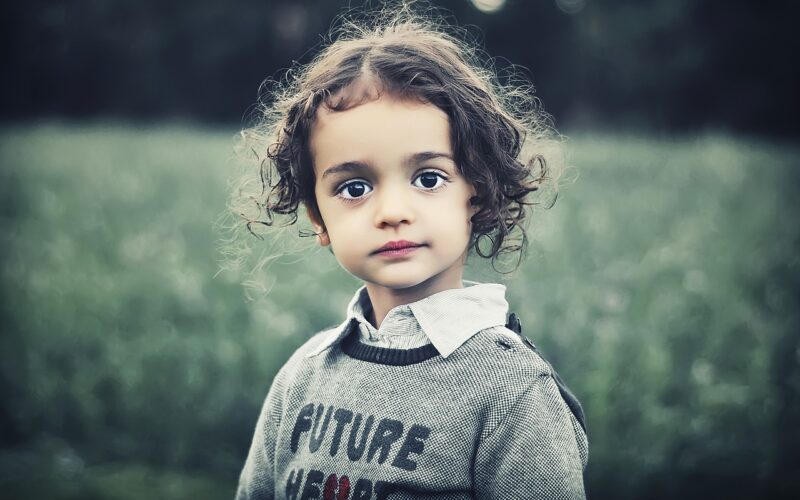Many parents often wonder whether to let their young children become models.
While some may argue that it is an excellent opportunity for their child to gain confidence and experience, others may worry about the potential negative impact on their child's development. It's crucial to consider your child's personality and interests before making any decisions.
Modelling can be a rewarding experience, but only if your child is interested in it and can handle the pressure that comes with it. As a parent, your primary concern should always be your child's safety and well-being.
It's crucial to do your research, ask for recommendations from trusted sources, and weigh the pros and cons before deciding if modelling is right for your child.
Pros of modelling for children
The benefits of modelling for young children cannot be overstated. Through modelling, children learn how to express themselves, build their self-esteem and social skills as well as hone their motor skills.
Modelling also initiates imaginative play, critical thinking and problem-solving techniques that they bring to school, their social lives, and in navigating their environment as they grow.
Not only is it a fun activity, but it also paves the way for a child’s cognitive, social and emotional development. As a parent, it is essential to encourage children to model and embrace this art form that has so many positives for their development.
Cons of modelling for children
Modelling can be a lucrative career choice for adults in the industry, however, modelling for young children comes with its own set of cons. One major concern is the impact it can have on a child's self-esteem and body image.
Being constantly judged and critiqued on their appearance can lead to feelings of insecurity and inadequacy. Additionally, it can be a time-consuming and stressful career for both the child and their family. Modelling often involves long hours, travelling and missing out on regular school and social activities.
Safety can also be a concern as young models may be put in situations that are potentially dangerous. It's important to consider all aspects of modelling for young children before making any decisions.
Developing a safe and supportive environment
Developing a safe and supportive environment while modelling is crucial for success in any industry. Whether you're a teacher, coach, mentor, or leader, creating a safe space for those you're leading can increase their confidence, creativity and willingness to engage.
Modelling behaviour can go a long way in shaping how your team operates, and setting an encouraging tone can help inspire those around you to work towards common goals. Creating a space where individuals feel supported to think creatively, share ideas, and take risks without fear of judgement can lead to a happier, more productive team dynamic.
Taking the time to invest in your team's wellbeing will pay dividends in the long run and help to build a positive culture of collaboration and growth.
Healthy habits for a modelling career
As a parent, it's important to prioritise your child's health during their modelling career.
Encouraging healthy habits can not only benefit their physical wellness, but also their confidence and overall success. It's crucial to ensure they get enough sleep, eat nutritious foods, and engage in regular physical activity. This can be achieved by establishing a consistent routine and setting aside time for healthy activities. Additionally, promoting good mental health practices, such as positive self-talk and stress management techniques, can further support a growing child's wellbeing.
Overall, by prioritising healthy habits, parents can help set their child on a path to success both in and out of the modelling industry.
How to prepare your child for the pressure?
As parents, it is natural to want the best for our children, especially if they have shown an interest in performing or entertainment. However, as much as we may want to shield them from the pressure and exposure of the industry, preparation is key.
One important step is to ensure that your child receives proper training and guidance, whether it be through classes, workshops or private coaching. It is also important to set realistic goals and expectations and to encourage your child to focus on their own personal growth and development rather than comparing themselves to others in the industry. Additionally, make sure to keep the lines of communication open and supportive, and to help your child develop a strong sense of self-worth and confidence.
With the right preparation and support, your child can navigate the industry with grace and resilience.
Alternatives to modelling
While modelling can be beneficial for kids in certain situations, there are alternative methods that can lead to successful futures as well. One such method is providing opportunities for children to explore their interests and passions.
By encouraging children to delve deeper into their hobbies or areas of curiosity, they can develop skills that can be practical in their future endeavours. Additionally, fostering a growth mindset in children can also lead to success. By teaching children to view challenges as opportunities to learn and grow, they can develop problem-solving skills and resilience that can serve them well in the future.
Ultimately, there are many paths to success, and it's important to find the methods that work best for each individual child's needs and strengths.






















